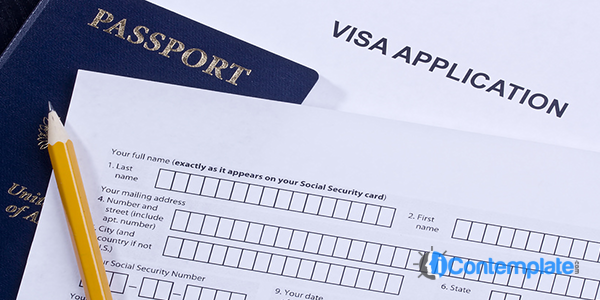It’s probably fair to say that a delayed UK immigration Visa application is infinitely more agreeable than a declined application, but the former can still present a serious inconvenience. This is of course especially the case when time is a factor – if you’re in something of a hurry for whatever the reason, the last thing you want is to find your application being set back several months. Nevertheless, this is a reality thousands of applicants face every month and in most cases don’t really have anyone else to blame but themselves.
According to the experts at Hudson McKenzie, there are certain bad habits and common applicant errors that are all-but guaranteed to result in an application being delayed or worse. What’s more, most of them are pretty simply mistakes to make and tend to be perpetuated day in and day out by so many applicants looking to get into the UK.
Take into account the following common causes of application delays and chances are you’ll be in a much better position to ensure a smooth process from start to finish:
1 – Use the Correct Application Forms
First of all, while it’s only fair to say that so many UK Visa application forms look about 99% identical, using the wrong form is about as beneficial as sending your application on a piece of kitchen towel. Quite literally in fact, as even if the application form you send contains pretty much everything they could ever need to know about you and your case, the fact that it’s the wrong form will render the whole application null and void. It sounds harsh, but technically speaking there’s really no excuse for making such careless mistakes with an application that’s of such pivotal importance to your life and your future. When in doubt…and even if you think you know what you’re doing…always ask for help making sure you have the right forms.
2 – Renew Your Existing Visa Prior to Expiration
For those currently in the UK with any given visa who may be looking to stay for longer, one of the most important tips of all is to apply for the extension well in advance of the visa’s expiration. The reason being that if you were to allow your visa to expire, there’s a strong chance you’ll be expected to apply again from scratch as if you were a new applicant and could even be asked to leave the country in the meantime. What’s more, the fact that you overstayed your visa’s limitations could count you out of reapplication, or if nothing else delay your application enormously.
3 – Hire a Lawyer with Experience
These days, the fact that you can find out pretty much anything at all about any subject in the world leads so many people to believe that they have no real use for professional advice and guidance. Of course if this was actually the case, there’d be no such thing as lawyers anymore, but common sense should tell you that this isn’t the case and nor is it ever likely to be. Sure, you can pick up tips on applying online, but if you want your application to go smoothly and have every chance of succeeding, you simply must take on a good legal advisor to help you through it.
4 – Don’t Make Prior Assumptions
Another of the most common causes of applications being delayed and indeed rejected is that of simply assuming that it won’t be a tricky job to nail and thus doesn’t warrant any real thought. This is a hugely common attitude among applicants – especially those that may have applied many times before and been successful. The reason being that even if you think you know everything or are indeed up to speed in certain areas of immigration law, things are changing at such a rapid rate these days that keeping up is a full-time job – as in the job of a lawyer.
5 – Beware of Immigration Agents
Last up, there are so many immigration services in operation up and down the country right now that would have you believe they’re the same things as lawyers when they are in fact anything but. It’s easy enough and perfectly legal for anyone to begin a business and start charging people for advice on immigration matters regardless of whether or not they actually have a clue what they are talking about. As such, if and when you choose an ‘agent’ rather than a lawyer, you may find yourself dealing with an individual or group thereof with little to no knowledge and/or experience on the subject at hand. If there are fully-fledged lawyers, you’re denying yourself the very best help and guidance.





